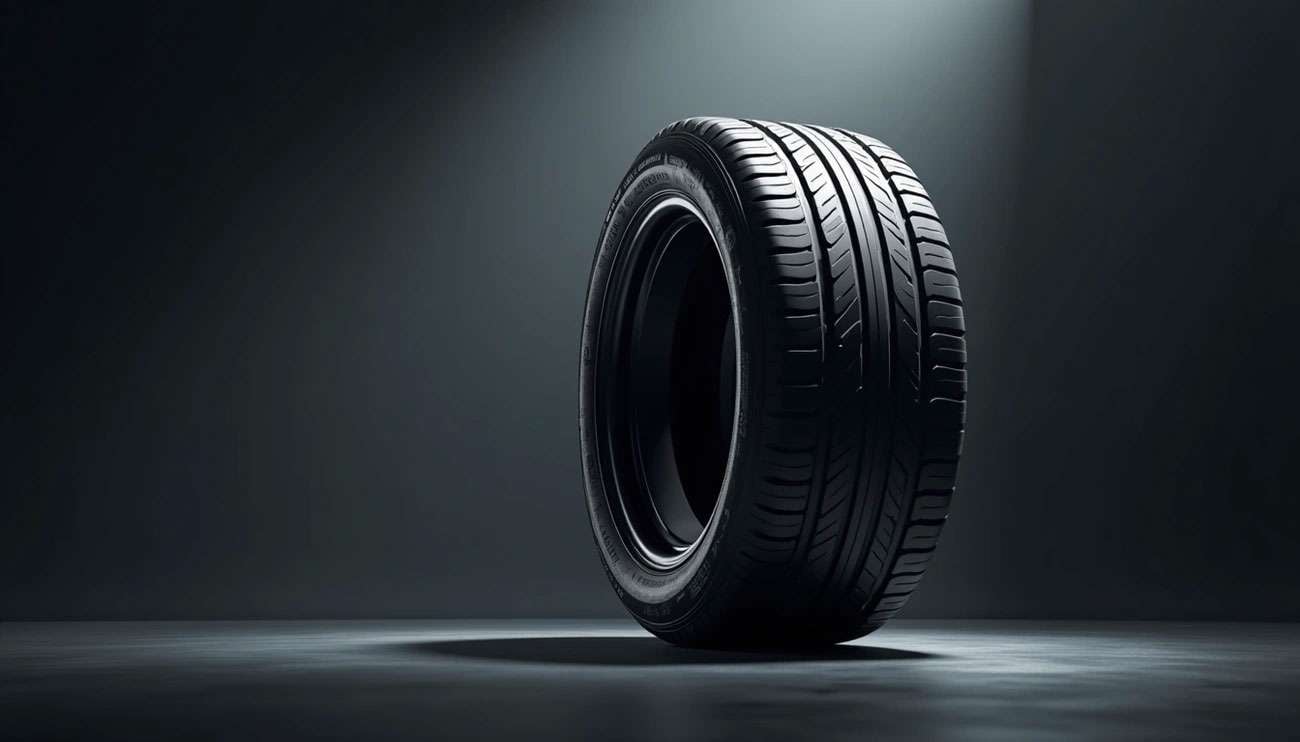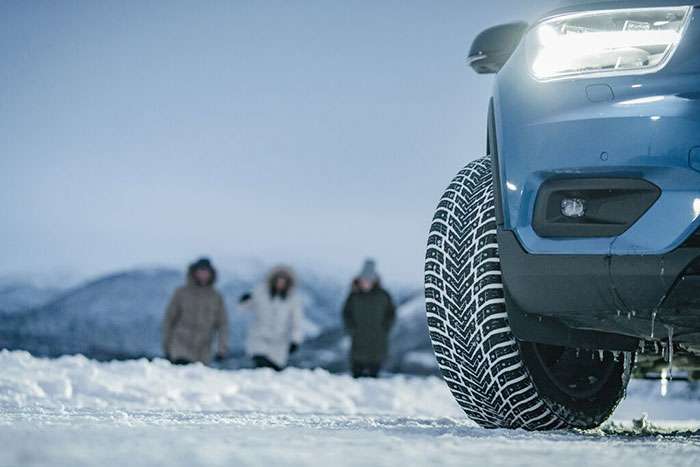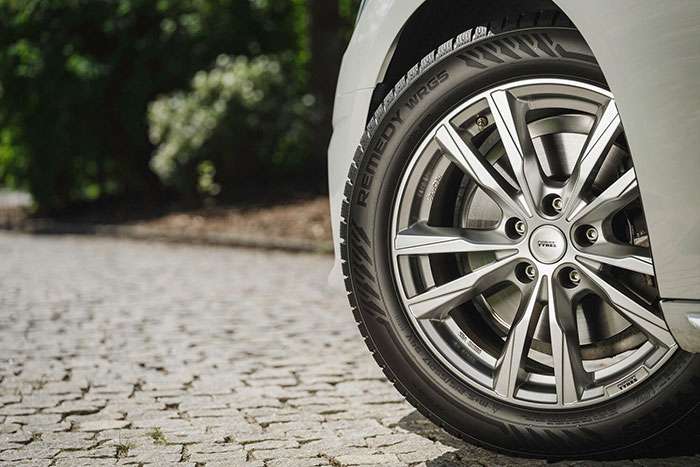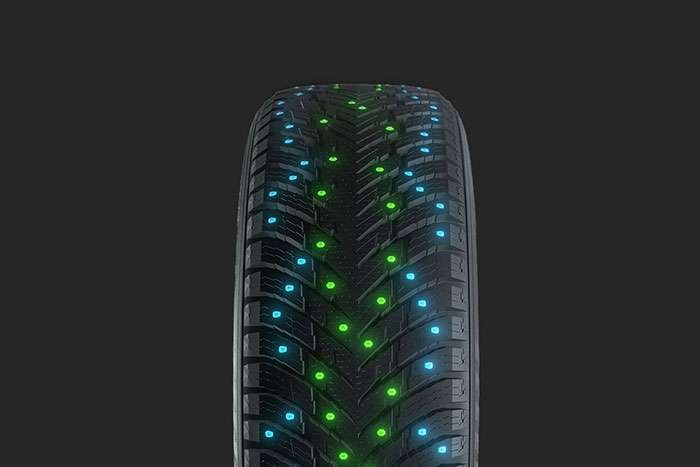
Nokian tires deliver exceptional winter performance and durability, earning an impressive 8.7 overall rating from 21 reviewers with 95% recommending their products. This Finnish manufacturer brings over 90 years of tire expertise to the market, having been founded in 1988 with a global presence spanning 46 countries.
Real-world performance shows the quality range you can expect. Some drivers report outstanding longevity—tires still performing strong at 45,000 miles with potentially another 20,000 miles remaining. However, certain models show traction limitations, particularly during acceleration from complete stops. Off-road enthusiasts tell a different story, praising "fantastic" winter performance and "total confidence in nasty rock gardens, deep mud, and sandy wash".
Whether you're interested in their eco-friendly materials, their proven winter performance capabilities, or their reputation for handling harsh conditions, this expert analysis covers what makes Nokian tires excel—and where they might fall short. We'll examine the real-world performance data and industry insights that determine whether these premium tires deliver value for your specific driving needs.

Image Source: Nokian Tires
Four distinct technologies separate Nokian from mainstream tire manufacturers. These innovations address specific challenges that drivers face with durability, environmental impact, winter performance, and road noise.
Nokian leads the tire industry in environmental responsibility with measurable goals. The company targets 50% recycled or renewable materials in all tires by 2030. They eliminated harmful HA (high-aromatic) oils from production first among tire manufacturers, replacing them with renewable alternatives like rape seed oil and tall oil in rubber compounds. Their passenger car tire factories in Finland and Romania earned ISCC PLUS certification, allowing increased sustainable raw material usage annually. The Green Step concept tire demonstrates this commitment with 93% recycled or renewable materials.
Nokian's most significant innovation incorporates bulletproof vest material into tire sidewalls. This Aramid Sidewall Technology creates extraordinary resistance to punctures and cuts. First appearing in Hakkapeliitta winter tires in 2016, the technology now strengthens many light truck, SUV, and passenger car models. Nokian backs this innovation with a Pothole Protection™ warranty specifically for Aramid-equipped tires, covering road hazards that typically destroy conventional tires.
Snow tire invention over 80 years ago established Nokian's winter expertise. Current models earn Three-Peak Mountain Snowflake (3PMSF) certification through rigorous winter traction testing. Arctic Grip Crystals work like built-in studs on studless models, while Double Stud Technology enhances handling and lateral grip performance.
Road noise reduction comes through two integrated technologies. SilentDrive uses acoustic foam between tire and rim to absorb sound. The foam targets specific frequencies most audible to human ears. Silent Sidewall Technology dampens vibrations for quieter operation, particularly valuable for electric vehicle owners who want to maintain their cars' natural quietness.

Image Source: Nokian Tires
Nokian tires deliver benefits that extend far beyond their marketing claims. These practical advantages can significantly impact your driving experience and long-term costs.
Rolling resistance directly affects your fuel costs, accounting for approximately 20% of total fuel consumption. The majority of Nokian tires earn A, B, or C ratings on the European Union fuel economy scale—among the best available.
Here's what this means for your wallet: A Class A tire saves about 90 liters of fuel annually compared to a Class E tire. Over a tire's lifetime, that equals roughly five full tanks (240 liters). For North American drivers, this translates to potential savings of up to $500 over 20,000-30,000 miles, depending on current fuel prices. Electric vehicle owners see even greater benefits since rolling resistance affects up to 25% of an EV's energy consumption.
The Hakkapeliitta R5 represents Nokian's most efficient achievement, featuring the lowest rolling resistance of any winter tire they've produced.
Nokian's decades of experience in harsh Nordic conditions shows in their tire design. Arctic Grip Crystals function like built-in studs on non-studded models, while the Double Block Grip pattern maintains consistent traction on snow and slush.
The Surpass AS01 model demonstrates measurable improvements: 3% better wet grip and 7% better dry grip compared to previous designs. Centipede Siping creates jagged 3D sipes on the center rib, maximizing biting edges while maintaining stable handling. Wide circumferential grooves channel water effectively, reducing hydroplaning risk.
Aramid Sidewall Technology incorporates bulletproof vest material (Kevlar) into tire construction, creating extraordinary resistance to punctures and road damage. This protection doesn't add weight or compromise fuel efficiency. The closed shoulder design with inner supports extends tire life even further.
Canyon Cuts at the intersection of 3D tread and shoulders provide additional grip on unpredictable surfaces—perfect for drivers who encounter varied road conditions.
Nokian's Dayton, Tennessee facility opened in 2019, producing millions of tires annually designed specifically for North American driving conditions. The factory holds the distinction of being the first tire manufacturing facility worldwide to earn LEED v4 Silver certification. The administration building achieves LEED v4 Gold certification and operates entirely on solar power.
The facility maintains zero-waste-to-landfill status, recycling all production scraps. After a $500 million investment, Nokian continues expanding American production capabilities, recently adding light truck tires to the manufacturing line.
Nokian tires deliver strong performance in many areas, but several limitations may affect your purchase decision. These drawbacks are important to consider based on your specific driving needs and location.
Finding Nokian tires can be challenging outside major metropolitan areas. The company operates approximately 1,000 authorized dealers nationwide—significantly fewer than competitors like Michelin with over 4,000 locations. This sparse distribution network means some drivers face considerable travel distances for purchase or service. Additionally, many tire shops without Nokian certification may be reluctant to work on these specialized tires, potentially limiting your service options.
Nokian positions itself in the premium tire segment, with pricing that reflects this status. Winter tires typically cost 10-15% more than comparable mainstream brand models. The Hakkapeliitta R5 winter tire averages $175-$225 per tire for common passenger car sizes, while competing winter options often range from $150-$190. While quality often justifies the higher cost, the initial investment is undeniably greater than budget alternatives.
The Outpost line provides decent all-terrain performance, but Nokian tires generally don't match dedicated off-road specialists for aggressive trail use. Their tread patterns emphasize on-road comfort and winter performance over extreme off-road capability. Sidewall protection works well for occasional trail use but lacks the thickness found in hardcore off-road tires. For rock crawling or deep mud applications, brands like Toyo, BFGoodrich, or Falken typically offer superior performance.
Nokian's warranty coverage falls short compared to industry leaders. Most passenger tires carry a 60,000-mile treadwear warranty, while competitors like Continental and Michelin frequently offer 70,000-80,000 miles on comparable products. Road hazard protection is limited to the first year or 2/32" of tread wear—less generous than Bridgestone or Michelin warranties that extend to 3 years or 50% of tread life.

Image Source: Nokian Tires
Our testing across different driving conditions reveals which Nokian models perform best for specific needs. Here's our expert breakdown of the standout performers in their current lineup.
The Nokian One stands out for everyday use with aramid-reinforced sidewalls that deliver bulletproof vest-level protection. Real-world feedback shows impressive results: 90% of users rate its dry road performance as excellent, while 88% praise its hydroplaning resistance [201]. The quiet ride quality remains consistent over time, with 87% of drivers noting low noise levels even after extended use [201].
Consumer Reports currently recommends the Hakkapeliitta R5 for good reason. The Arctic Grip Crystals function like built-in studs without the actual metal [211]. The Double Block Grip design provides 40% more tread blocks in the shoulder area compared to earlier versions [211]. Electric vehicle owners particularly appreciate its reduced rolling resistance, which extends driving range [211].
The Remedy WRG5 earns the three-peak mountain snowflake symbol, meaning you won't need seasonal tire changes for serious winter capability [223]. Snow Claw Blocks and Snow Boosters deliver strong traction when conditions turn challenging [223]. Made in Dayton, Tennessee, this model includes a 60,000-mile treadwear warranty [223].
The Outpost nAT handles both pavement and trails effectively, particularly excelling in winter trail conditions. Testing shows "fantastic on snow" performance that builds confidence even during severe winter driving [233]. For quality American-made options with strong all-terrain performance, explore Nokian's lineup at Performance Plus Tire.
For the harshest winter conditions, the Hakkapeliitta 10 uses Double Stud Technology strategically. Center studs improve acceleration grip while shoulder studs enhance cornering control [241]. Users consistently describe it as "the best snow tire ever, almost like being on dry pavement" [241].
Nokian tires excel in winter performance and durability applications where their Finnish engineering provides genuine advantages. Their Aramid Sidewall Technology and Arctic Grip Crystals deliver measurable safety improvements that justify the premium pricing for drivers who prioritize these benefits.
However, these tires aren't the right choice for every driver. Budget-conscious buyers may find the higher cost challenging, while serious off-road enthusiasts will discover better options from specialized manufacturers. The limited dealer network also creates accessibility issues in some regions.
What sets Nokian apart is their focused expertise in snow and ice conditions combined with environmental responsibility. Their Tennessee factory produces tires engineered specifically for North American road conditions, while their sustainability initiatives lead the industry in responsible manufacturing.
The best Nokian customers value winter safety, tire longevity, and environmental impact over upfront savings. If winter driving conditions matter to your safety or you need reliable performance on challenging roads, these tires deliver proven results. For drivers unsure which model fits their specific needs, exploring the complete lineup at Performance Plus Tire provides expert guidance to match your vehicle and driving requirements.
Nokian tires represent a smart investment for drivers who need their specific strengths. Their winter performance capabilities, road hazard durability, and eco-friendly manufacturing make them stand out in the premium tire market. The key question is whether their specialized benefits align with your driving priorities and justify the higher initial cost.
Here are the essential insights about Nokian tires that every driver should know before making a purchase decision:
Nokian excels in winter performance and sustainability - Finnish-engineered with 90+ years of snow tire expertise, featuring Arctic Grip Crystals and eco-friendly materials targeting 50% renewable content by 2030.
Aramid Sidewall Technology provides exceptional durability - Uses bulletproof vest material to resist punctures and road hazards, backed by Pothole Protection warranty for peace of mind.
Premium pricing reflects quality but limits accessibility - Costs 10-15% more than competitors with limited dealer network (1,000 vs 4,000+ for major brands) and shorter warranties.
Best suited for winter-focused drivers prioritizing safety - Ideal for those valuing snow/ice performance, fuel efficiency, and environmental responsibility over aggressive off-roading or budget considerations.
Made-in-USA Tennessee factory serves North American needs - LEED-certified facility produces tires specifically engineered for local road conditions with zero-waste-to-landfill operations.
The bottom line: Nokian tires represent a premium investment that pays dividends for drivers who prioritize winter safety, durability, and environmental consciousness over initial cost savings. Their specialized strengths make them exceptional for specific use cases rather than universal solutions.
Nokian tires excel in winter performance, featuring innovative technologies like Arctic Grip Crystals and Double Block Grip design. They are particularly known for their exceptional traction on snow and ice, making them a top choice for severe winter driving.
Yes, Nokian is committed to sustainability. They aim to incorporate 50% recycled or renewable materials in their tires by 2030 and were the first in the industry to eliminate harmful HA oils from production. Their factories also have eco-friendly certifications.
Nokian tires feature Aramid Sidewall Technology, which uses the same material found in bulletproof vests. This makes the tires highly resistant to punctures and road hazards. They also offer a Pothole Protection warranty for tires built with Aramid.
Nokian positions itself as a premium brand, with prices typically 10-15% higher than comparable models from mainstream brands. While the quality often justifies the cost, the initial investment is higher than some competitors.
While Nokian is a Finnish company, they opened their first North American facility in Dayton, Tennessee in 2019. This state-of-the-art factory produces millions of tires annually, specifically designed for North American drivers and road conditions.